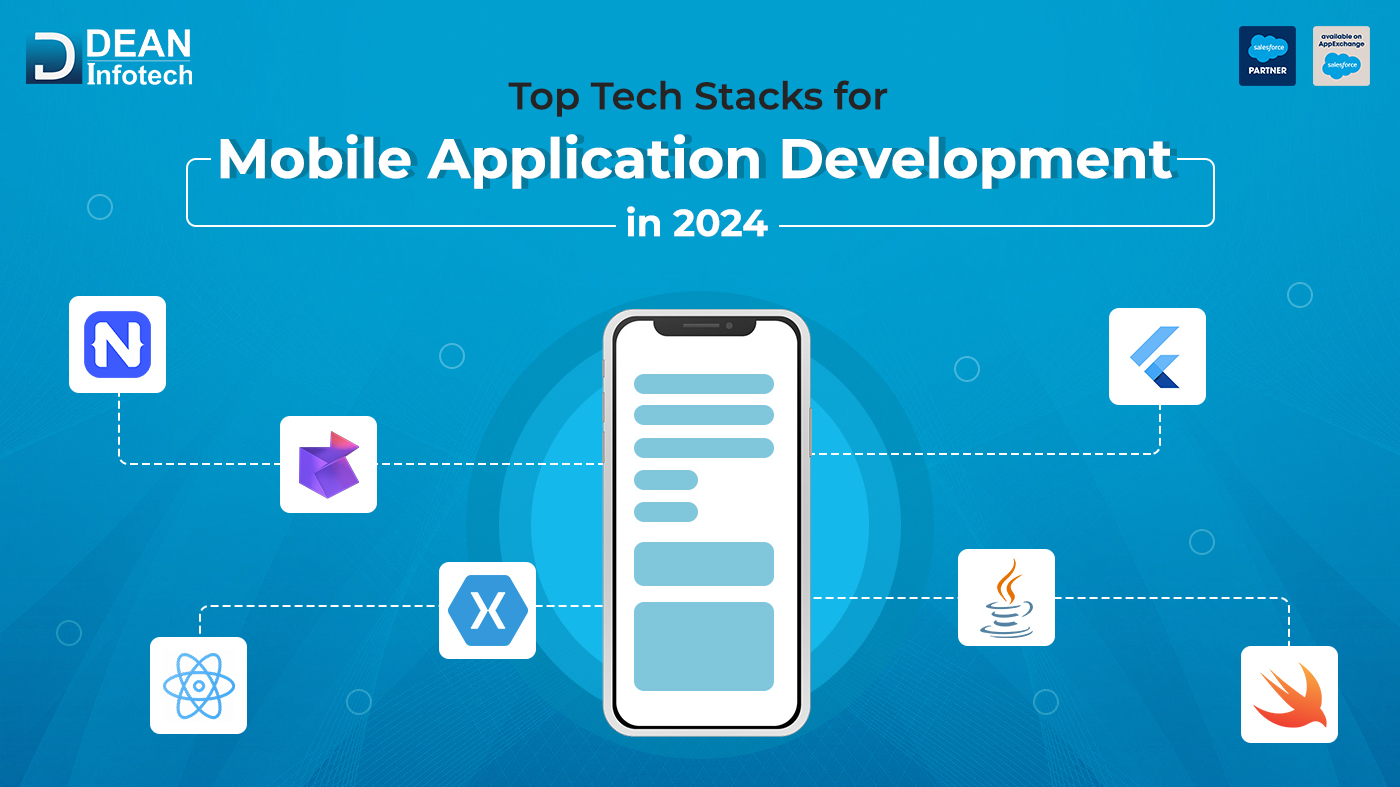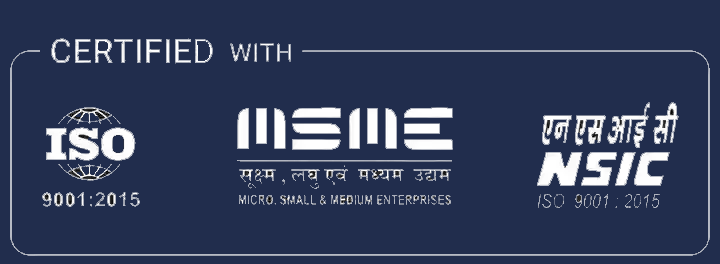Top Tech Stacks for Mobile Application Development in 2024
 Ankit Agarwal Monday, December 18, 2023
Ankit Agarwal Monday, December 18, 2023
Mobile application development has become a cornerstone of the digital landscape, and choosing the right tech stack is crucial for building high-performing, user-friendly applications. As we look ahead to 2024, the mobile app development industry continues to evolve rapidly, introducing exciting new technologies and trends.
This blog will explore the top tech stacks for mobile app development in 2024, helping you make informed decisions for your next app project.
Top Tech Stacks for Mobile App Development in 2024
1. Flutter
Language: Dart
Key Features: Flutter has gained immense popularity for its cross-platform capabilities, allowing developers to build apps for both Android and iOS with a single codebase. It offers a rich set of pre-designed widgets, excellent performance, and extensive community support.
Pros:
- Cross-platform development with a single codebase.
- Rich set of pre-designed widgets for a consistent UI.
- Excellent performance.
- Extensive community support.
Cons:
- Larger app size compared to native solutions.
2. React Native
Language: JavaScript
Key Features: Developed by Facebook, React Native continues to be a top choice for mobile app development. It leverages the power of React to create native-like experiences on both major mobile platforms. It's known for its reusability and quick development.
Pros:
- Cross-platform capability leveraging JavaScript.
- Reusable components for quicker development.
- Strong community and Facebook backing.
Cons:
- Potential for performance issues in highly complex apps.
3. Kotlin Multiplatform Mobile (KMM)
Language: Kotlin
Key Features: Because of its shared code features between iOS and Android, Kotlin Multiplatform Mobile is gaining popularity as a viable alternative for cross-platform development. KMM is officially endorsed by JetBrains and Google, adding to its credibility.
Pros:
- Shared code features for iOS and Android.
- Endorsed by JetBrains and Google.
- Seamless integration with existing Kotlin code.
Cons:
- Smaller community compared to some other frameworks.
4. Swift for iOS
Language: Swift
Key Features: Regarding iOS app development, Swift remains the go-to language. It offers enhanced performance, improved security, and an ever-growing ecosystem of libraries and tools.
Pros:
- Swift is optimized for iOS, ensuring high performance.
- Enhanced security features.
- Growing ecosystem of libraries and tools.
Cons:
- Limited to iOS development.
5. Java for Android
Language: Java
Key Features: Java remains a prominent choice for Android app development. Its well-established ecosystem, compatibility, and extensive libraries make it a reliable option.
Pros:
- Well-established ecosystem.
- Compatibility and extensive libraries.
- Widely used and reliable.
Cons:
- Verbosity of code compared to newer languages.
6. NativeScript
Language: JavaScript, TypeScript
Key Features: NativeScript enables the development of native mobile apps using JavaScript or TypeScript. It provides direct access to native APIs, delivering high-performance, platform-specific experiences.
Pros:
- Development of native apps using JavaScript or TypeScript.
- Direct access to native APIs for high performance.
Cons:
- Smaller community compared to some other frameworks.
7. Xamarin
Language: C#
Key Features: C# developers can build iOS, Android, and Windows apps using Xamarin, a Microsoft product. It offers excellent native performance and extensive support.
Pros:
- Allows C# developers to build apps for iOS, Android, and Windows.
- Native performance and Microsoft support.
Cons:
- Larger app size and slower startup times.
8. PhoneGap/Cordova
Language: HTML, CSS, JavaScript
Key Features: PhoneGap/Cordova simplifies mobile app development using web technologies (HTML, CSS, and JavaScript). It's ideal for rapid development and maintaining a single codebase for multiple platforms.
Pros:
- Simplifies development using web technologies.
- Ideal for rapid development and maintaining a single codebase.
Cons:
- Potential performance issues compared to native solutions.
Conclusion
Choosing the correct technology stack for mobile applications in 2024 might have a big influence on the success of your project. The choice depends on various factors, such as project requirements, budget, development team expertise, and your target audience.
Dean Infotech places a premium on staying current with the newest technology and trends as the best mobile application development company. Our skilled staff is well-equipped to help you through the process, ensuring that your mobile app is created with the most appropriate technological stack for your unique requirements.
Whether you opt for cross-platform solutions like Flutter, React Native, or Kotlin Multiplatform Mobile or choose to go native with Swift, Java, or other options, we're here to help you make 2024 a year of success and innovation for your mobile app project. Don't hesitate to contact Dean Infotech today, and let's bring your mobile application ideas to life. Your success is our priority!








Comment